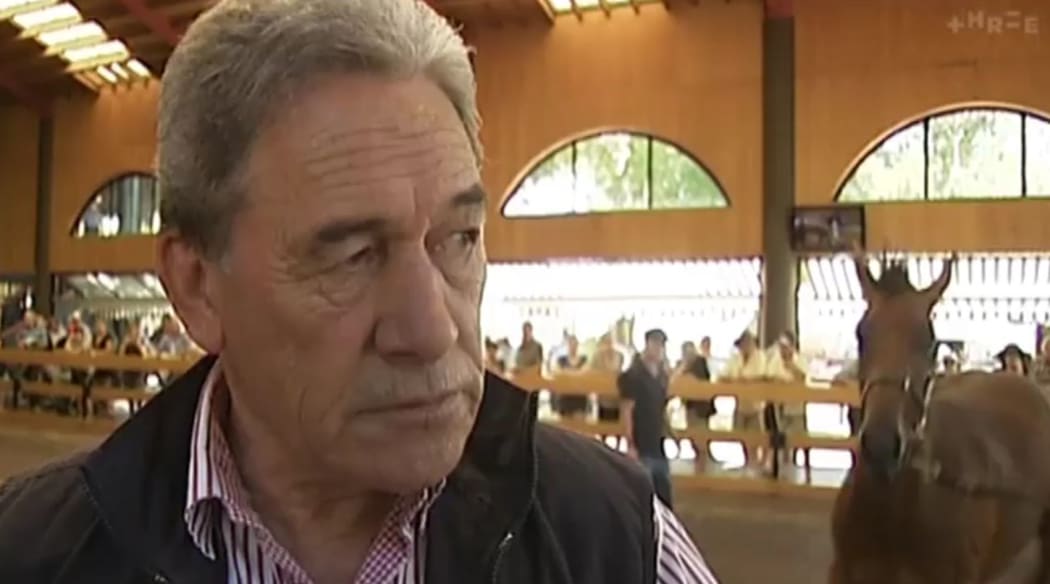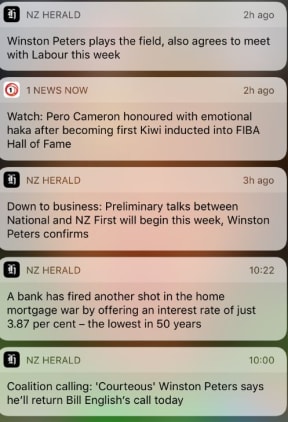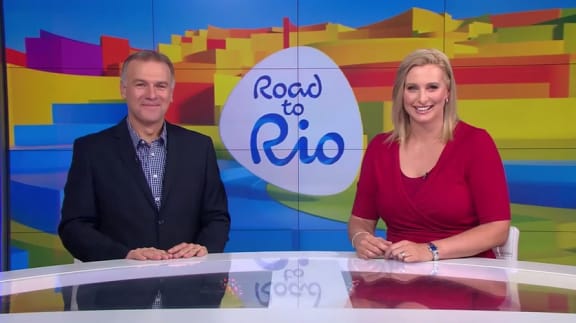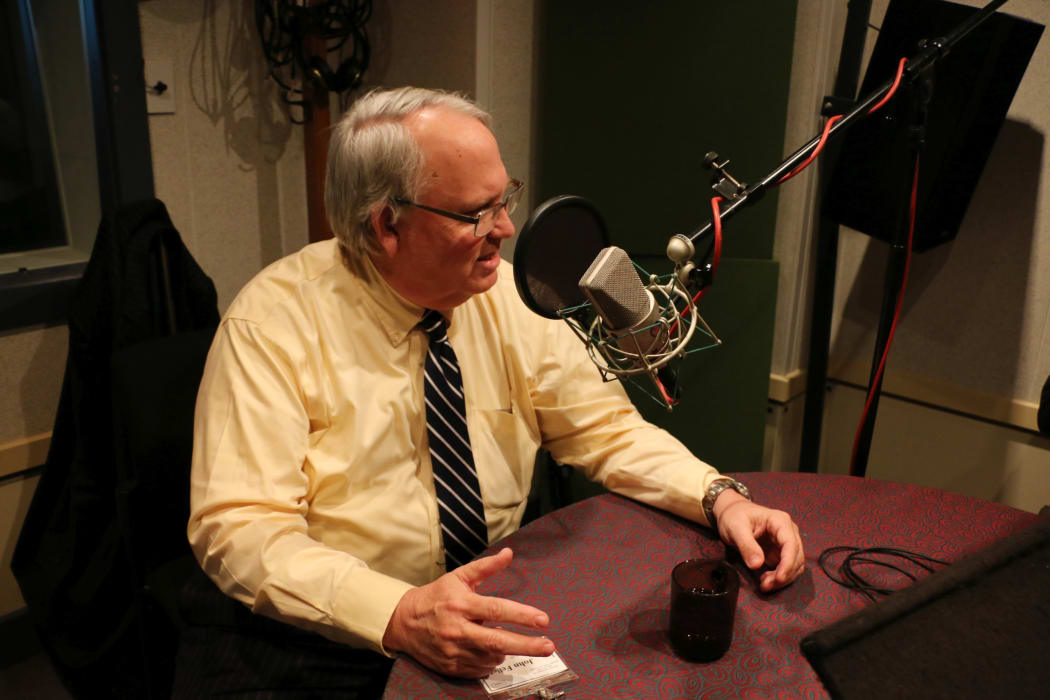As reporters tried in vain to work out which way Winston was leaning and what he wants from political partners, the issue of sport on TV suddenly appeared on the agenda again.

Winston Peters tells Newshub back in January at Karaka he's not "humbugging around" about free-to-air sport. Photo: screenshot / Newshub at 6
Political reporters strung out after an unexpectedly intense election campaign could be forgiven for taking a few days off after Winston Peters told them he’d be saying nothing until all the votes were all in this weekend.
But instead they were like coiled springs looking for any sign, clue or hint of what he might possibly want.
When caretaker Prime Minister Bill English revealed on Monday he had called Winston Peters but got no answer, that was immediately splashed as breaking news on news websites and on people’s phones all over the country.

Who called whom and when prompted lots of breaking news alerts from reporters anxious for actual news of a new government forming. Photo: PHOTO / screenshot
Winston Peters also sternly told the media he wouldn’t talk about any bottom lines New Zealand First may or may not have in negotiating with other parties, confounding reporters who had a list of things he'd already said he wouldn’t give ground on.
TV3’s Newshub went back through its archive and found another one last Monday.
In a previously unaired interview shot last January - against the backdrop of the yearling sales at Karaka - he said top sport should be on TV for free in New Zealand.
In a piece for the New Zealand Herald at the time he said “the ability to watch sport is a Kiwi birthright.”
He referred to UK and Australia, where laws specify certain sporting events that must be available to free-to-air TV broadcasters, and he said India had even tougher rules.
The Indian Supreme Court ruled in a case last year that "sporting events of national importance" must be shared with India's national public broadcasting corporation.
New Zealand First had already run this particular populist policy up the flagpole. Last year MP Clayton Mitchell introduced a bill to Parliament to put “sports of national significance” on TV for free.
It was a long list including the Olympic Games, the Commonwealth Games, all domestic rugby test matches, the Super Rugby final, domestic and World Cup netball, and major cricket, rugby league, football, tennis and basketball matches.

Australian laws mean top events like The Olympics are guaranteed to be on free-to-air TV. Photo: screenshot
Winston Peters told Newshub he was serious about this. Anyone dealing with them “should stop humbugging around," he warned.
But free to air broadcasting of all those sports would certainly bugger up the business model of Sky TV.
For more than 25 years, it has used exclusive live sports rights to get hundreds of thousand of households to subscribe to its range of channels.
When business consulting firm Grant Samuel assessed the risks to Sky TV last year as part of its proposed merger with Vodafone, the prospect of such a change in the law wasn’t even mentioned.
But Sky TV’s long-serving chairman John Fellet certainly knew it could be a politically popular move.

Sky TV chief executive John Fellet Photo: RNZ / Francesca Emms
"You and I could start a political party tomorrow and call it the Free-To-Air Sports Party and we'd get five per cent of the vote with no other policy but that," he told Mediawatch a year ago when the NZ First Bill was still on the table in the House.
But John Fellet went on to say the top New Zealand sporting codes would then suffer.
"Sky is the largest funder of the All Blacks. It's all they can do now to stop top players going overseas. The All Blacks would become the best non-professional team in the world," Mr Fellet said.
With that in mind Labour and National were happy to team up for a grand coalition to vote against New Zealand First's bill in Parliament last May.
Last Monday though, Newshub’s Jenna Lynch said neither Labour or National would rule out the idea now.
The biggest sports wouldn’t miss out on big bucks immediately.
Sky TV has contracts securing exclusive rights until 2020 for cricket and All Black rugby. By the time those expire, we will have had another election.
But with those contracts in place, is it even possible to change the law before then anyway?
"I don't understand how it can work. This is government interfering in the private sector and New Zealand stopped doing that in broadcasting in 1989," said University of Canterbury media law expert Prof Ursula Cheer last Tuesday on Radio Live.
"It certainly undermines the property that Sky has paid a good deal of money for. Legislation would be seen as incredibly onerous from that perspective," she said.
Prof Cheer went on to say that with big money at stake, this was about more than just sport on our screens.
"For things to turn around just in regards to sport would be extraordinary. I would rather see some money going into some general public broadcasting," she said
If Winston Peters is determined to deliver top sport on our screens for free as a condition of forming a government, expect to see a scrum of of lawyers forming the moment that deal ever gets done.

